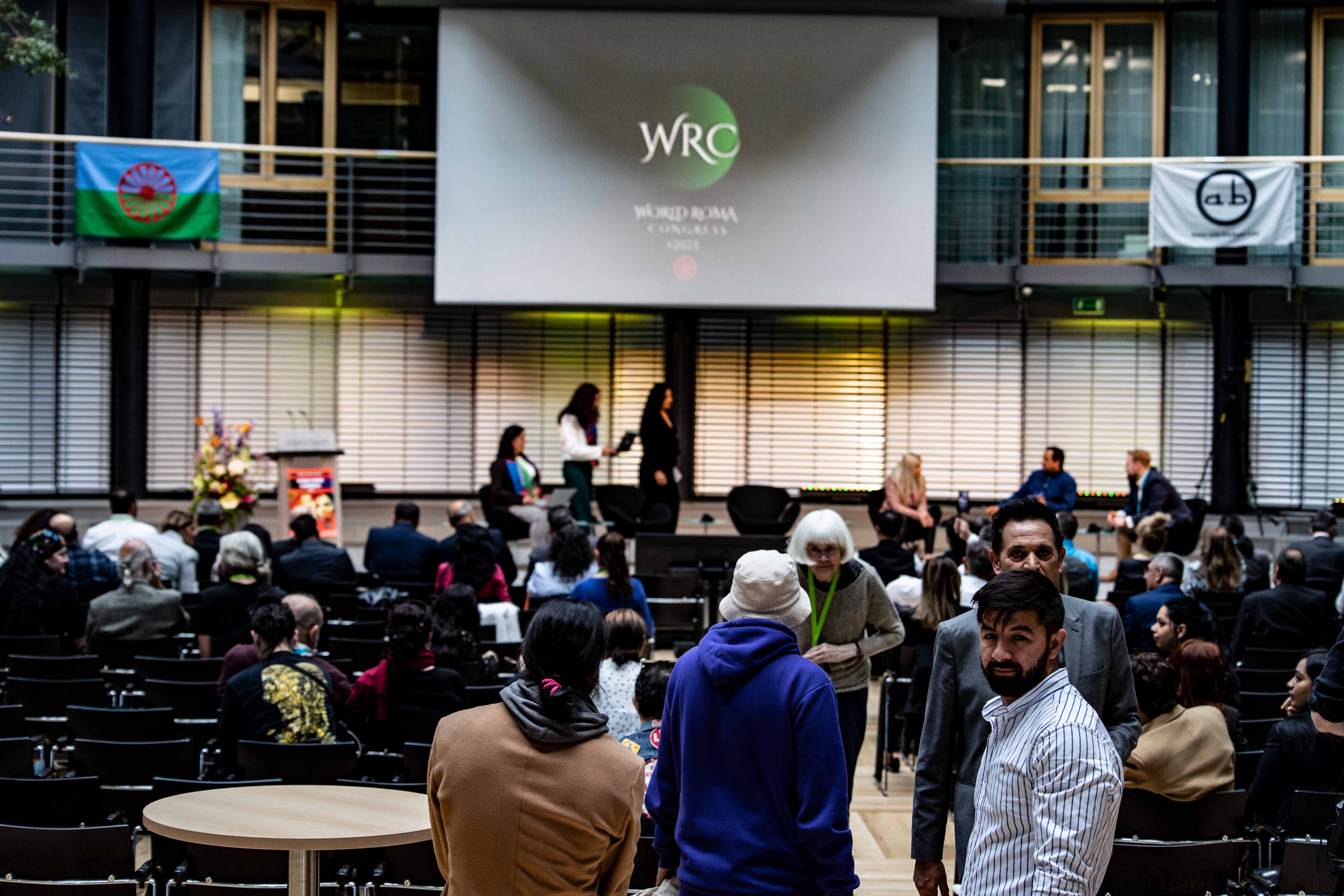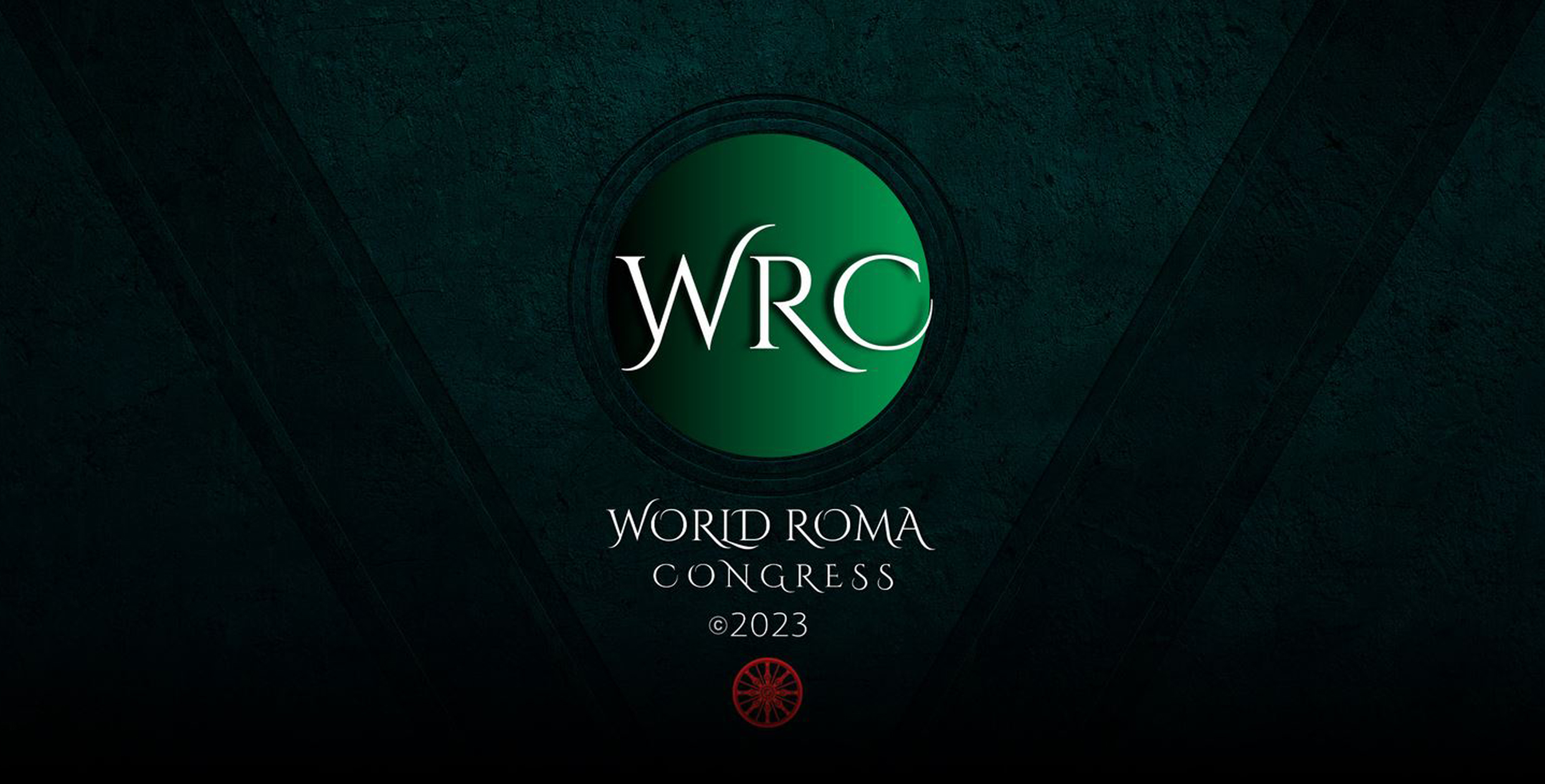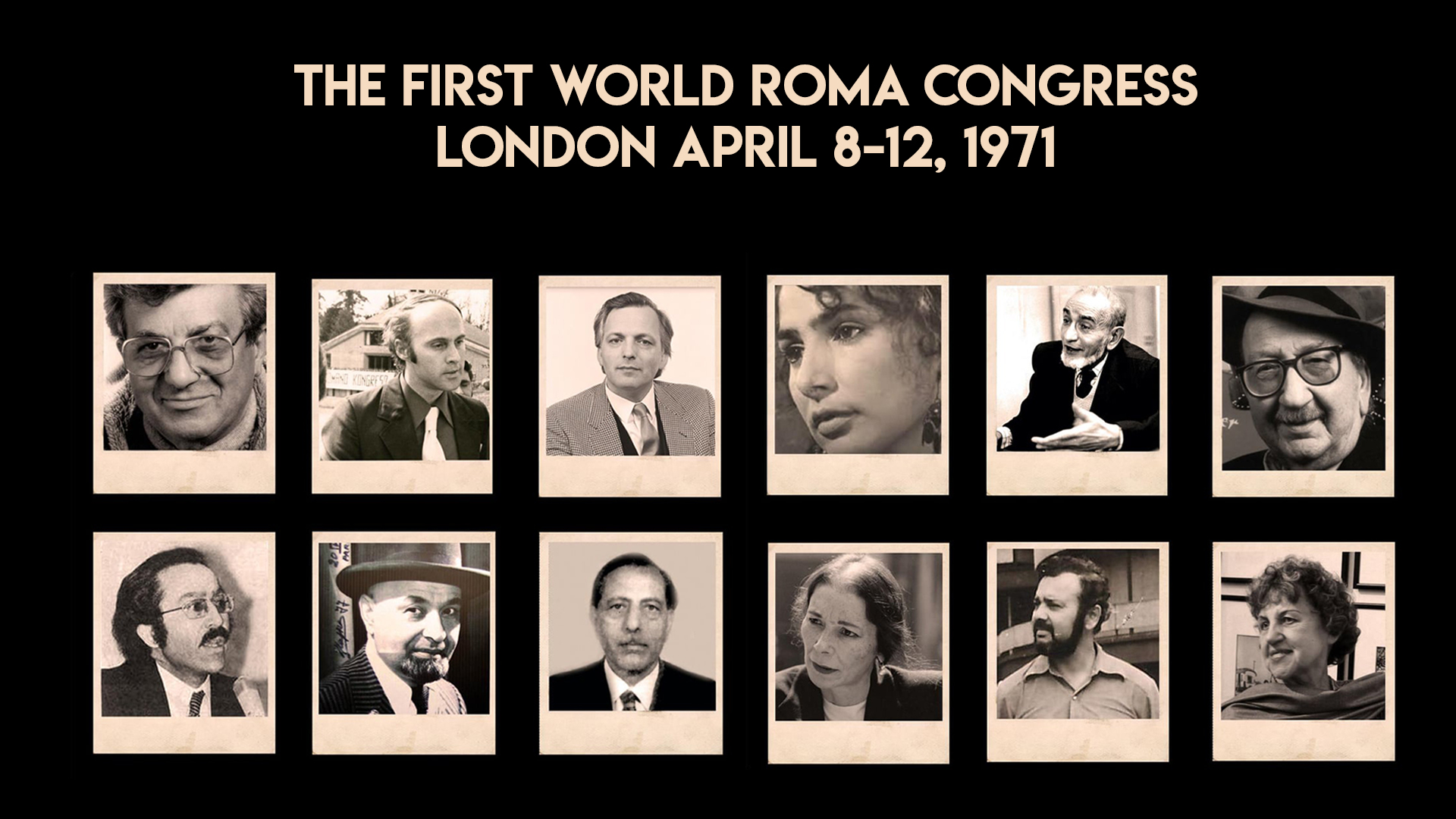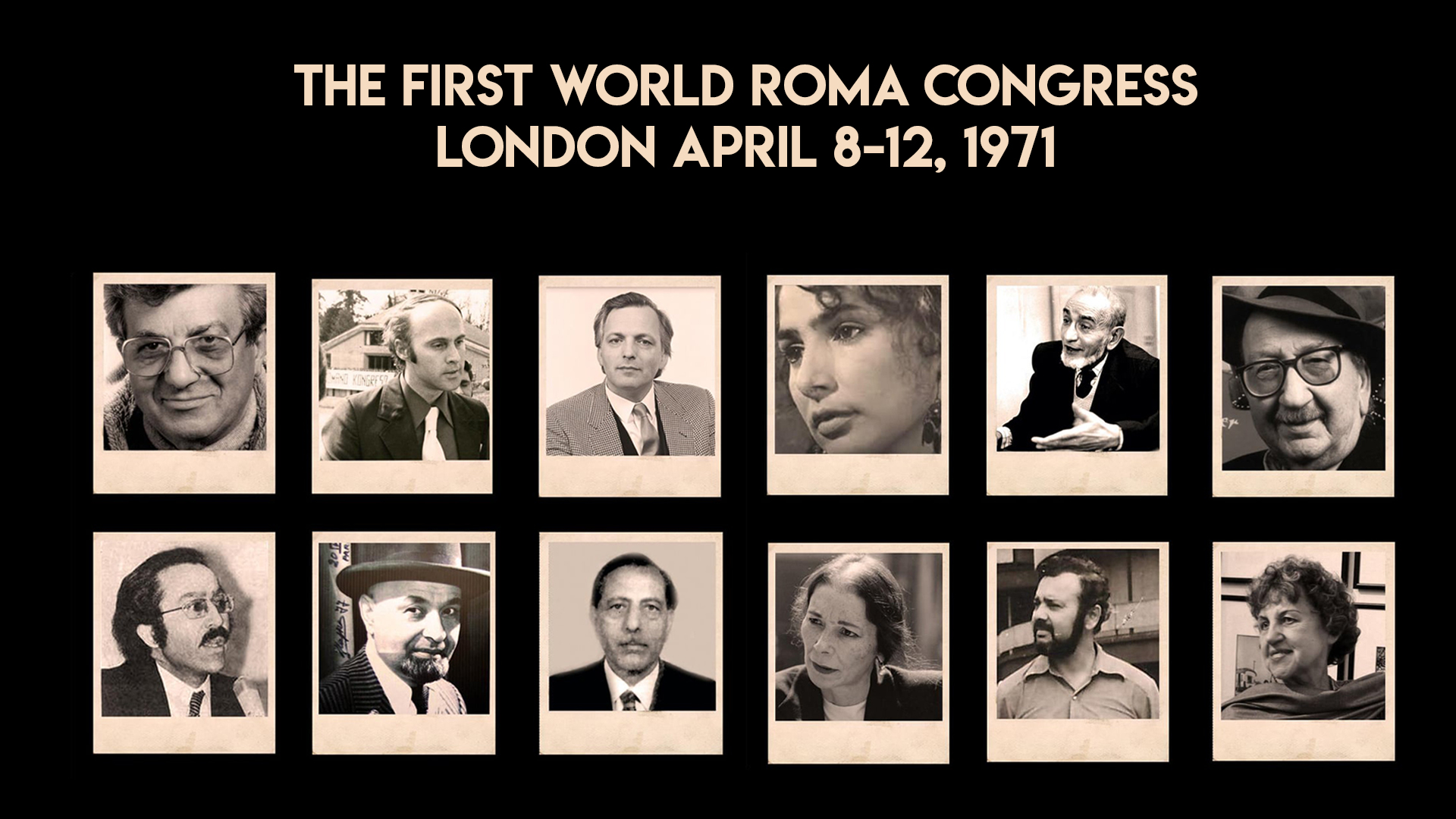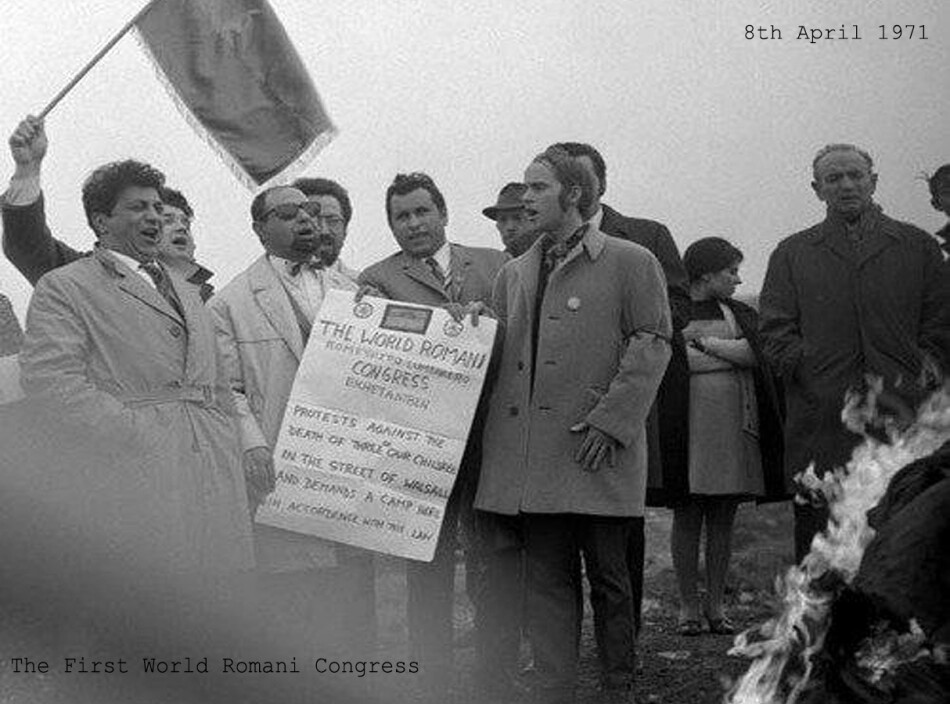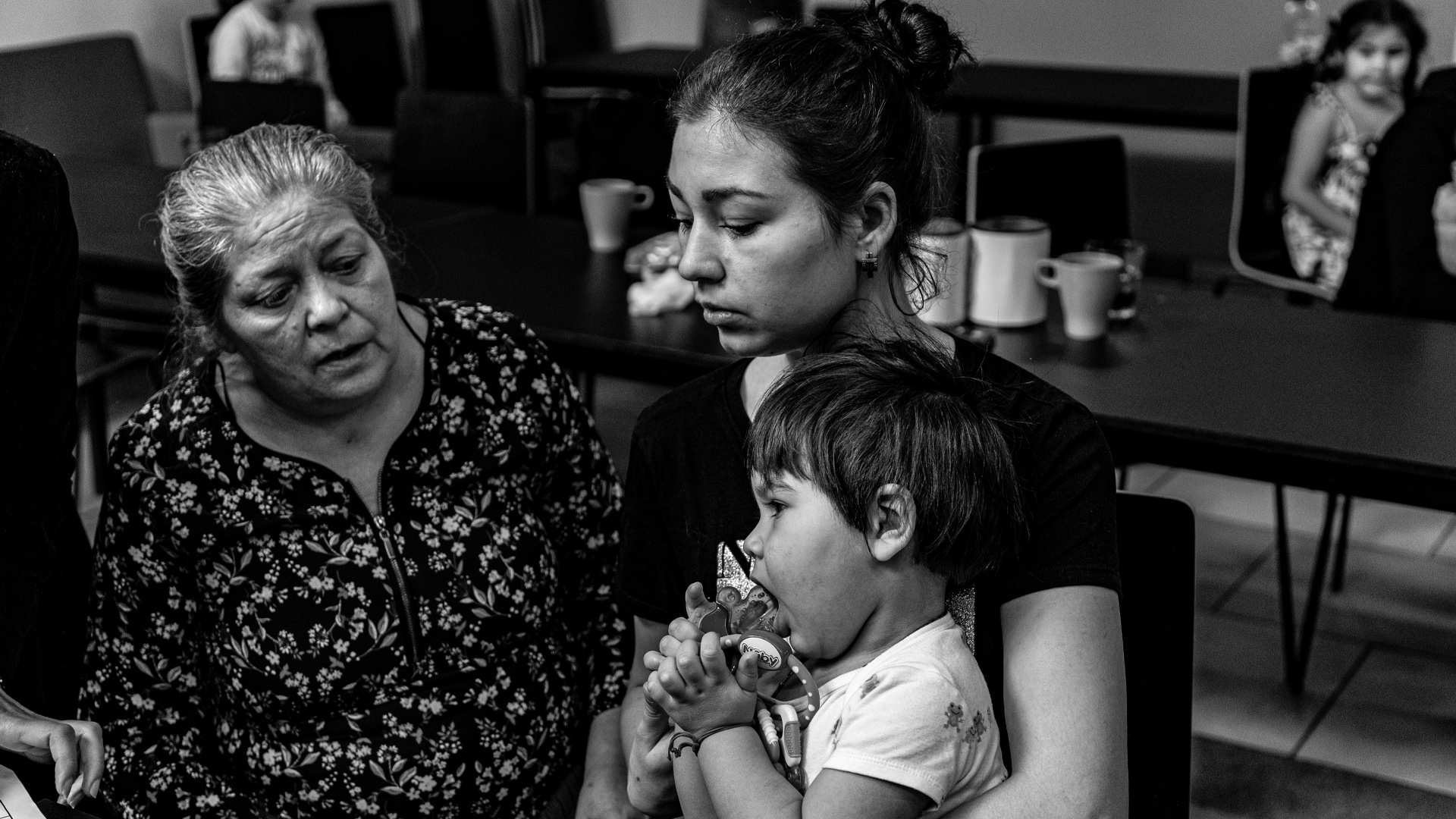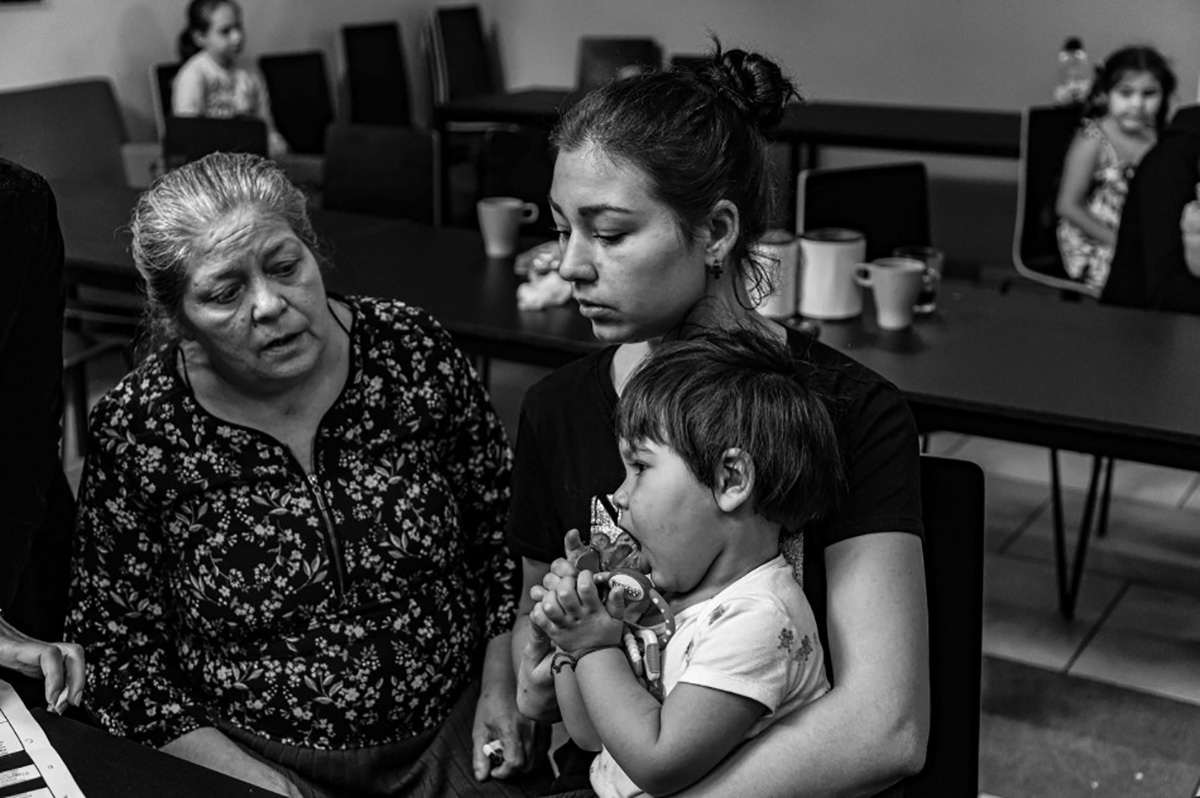- Read Time: 8 mins
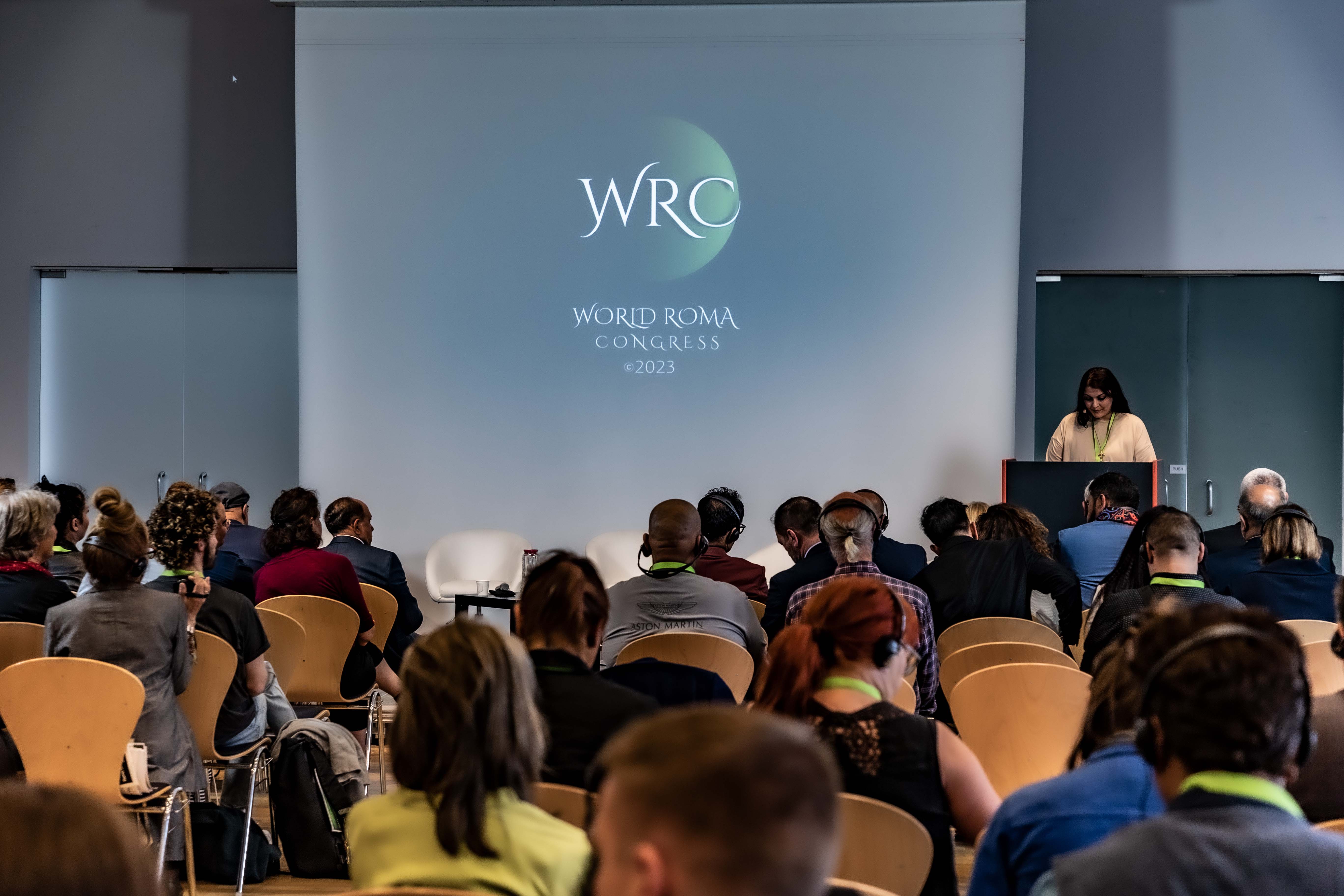
The World Roma Congress 2023 in Berlin
Around Roma Resistance Day (16 May), Roma from 30 countries met to discuss the pressing issues faced by the community worldwide.
On 15 May, the congress started with workshops for people from Roma organisations and activists from the community. The workshops ran over three days. The central topic was the discussion on Crimes against Roma, which covered various aspects of deprivation of rights and human rights violations, including wars. The Emergency Room discussed the current state of the Roma movement worldwide and ways out of the emergency situation of the Roma community.
The public part of the congress began with a panel on the situation in Germany. Nizaqete Bislimi-Hošo, lawyer and chairperson of the Federal Roma Association, spoke about deportation and the right to stay. The problem of long-term tolerations is still topical. Isidora Randjelović from RomaniPhen spoke about the recommendations of the Independent Commission Antiz****ism, which have hardly been implemented so far. She is co-author of the most important study commissioned by the UKA: on Roma experiences of racism in Germany.
The Roma Philharmonic gave an interview on their work and the influence of Roma on classical music. Imer Kajtazi from REU Jekhipe proposed the concept for a Europe-wide network that can quickly intervene in cases of discrimination.
In speeches, Roma from different countries reported on the situation on the ground. The European dimension was discussed from different perspectives in the second panel. This included the threat of right-wing extremism to the Roma community in Hungary, the negative impact of the Corona pandemic on migrant Roma and police violence - including the case of Stanislav Tomaš and the lack of solidarity in the world in such cases.
At the ceremonial opening on the second day of the congress, Roma Resistance Day, the Roma Philharmonic Quintet conducted by Riccardo M Sahiti played moving pieces. Speeches by Saraya Gomis, the former Berlin State Secretary for Diversity and Anti-Discrimination, Grattan Puxon, the Secretary General of the First World Roma Congress in London in 1971, Mehmet Daimagüler, the Federal Government Commissioner against Anti-Z****ism, Andrea Despot from the Foundation EVZ, Jasna Čaušević from the Society for Threatened Peoples and other speakers addressed the significance of 16 May, Roma resistance and the history of the World Roma Congresses. Such a congress was held in Germany for the last (but also the first) time in 1981. It finally led to the recognition of the racially motivated genocide of the Sinti (and not so much of the Roma - we are still waiting for this today) by the then German government in 1982.
Orhan Tahir spoke about the political significance of the World Roma Congresses in his speech. Vicente Rodriguez Fernandez of La Orden del Fenix spoke about the unknown history of the Roma movement, which began well before 1971. In particular, he introduced us to the life and work of Shakir Pashov. The Bulgarian Rom was born on 20 October 1898, fought in the First World War and for the rights of workers from the Roma community and against sexism. He joined the resistance during the Second World War.
Did you know that Roma Nation Day is on 7 May?
Yes, what has been 8 April since 1971 was previously 7 May. On this day in 1932, the Bulgarian Roma held a conference in Mezdra. The United Roma Organisation Ekhipe was founded to represent the global Roma community. Members were Christian and Muslim Roma over 18, regardless of gender and social background. Its aims included:
- the fight against fascism and against anti-z****ist and racist prejudices;
- the promotion of Roma national feeling and consciousness;
- the introduction of the Roma language as a spoken and written language among the Roma;
- to educate non-Roma public opinion about the needs of the Roma population.
It is hard to believe that almost 100 years have passed since then. Many defeats had to be endured. The association founded by Pashov was banned by the fascists only a few years later.
The Second World War still casts its shadow. But we also have to deal with the consequences of further wars.
At the Kosovo panel on 16 May 2023, the ethnic cleansing in Kosovo after the war in 1999 was discussed, when 150,000 Roma were expelled from the region and stripped of all their possessions. Today, the majority of Kosovar Roma live in the global diaspora. Many still have no secure status. The Kosovo Roma Rights Coalition demands justice for these people. This includes the recognition of 13 June as the official commemoration day of the expulsion of Roma from Kosovo.
During the Syrian war, many members of the Dom community - the Roma of the Middle East - were displaced and now live in Turkey. Kemal Vural Tarlan of Kirkayak Kültür spoke about their situation, which was made worse by a severe earthquake in the Turkish-Syrian border region in 2023. The current war in Ukraine and discrimination against Ukrainian refugees from the Roma community was a central topic, which Izabela Jaśkowiak from the Polish Roma organisation Harangos spoke about, among others. Other topics of the evening included the forced sterilisations of Romnja in the Czech Republic and the consequences of Brexit for migrant Roma in England, about which the participants from European Drom spoke.
On the third day of the Congress, we commemorated the victims of the Roma genocide at the memorial for the Sinti and Roma of Europe murdered in the Nazi regime. Speeches were held in particular to commemorate 16 May 1944, the day on which all the Roma remaining in Auschwitz were to be murdered. These more than 6000 people resisted the SS and were thus able to survive for the time being. Resistance was not only offered on this day - many Roma fought as partisans and in the Red Army. In this way they not only made an important contribution against persecution, but also to the liberation of Europe. Alfreda Markowska carried out another form of resistance. The Polish Romni rescued children from the trains to Auschwitz and looked for their families or, if they no longer had any, a new home. Her story and the story of the Roma who stood up for their right to stay at the memorial in 2016 and were then forcibly evicted are told, among many others, in the app that RomaniPhen developed and launched at the event. The app will become part of the memorial as a digital element, adding to it the narratives of the Roma community.
The Roma Center/ Roma Antidiscrimination Network spoke about the Samudaripen - the ignored genocide of the Roma of Europe. The fact that this genocide was not limited to the Sinti and the German area is not particularly well known, neither in Germany nor in other countries. The invasion of large parts of Europe and the occupation of these countries led to the persecution of the Roma in these areas. They were forced into concentration camps, deported for forced labour and murdered in mass shootings.
With the end of the Kosovo War, the greatest catastrophe for Roma since the end of World War II began: Kosovo was ethnically cleansed, the UCK and other (Kosovo) Albanian nationalists expelled almost all Roma from Kosovo, especially from 13 June 1999. The ethnic cleansing against Roma was combined with torture, rape, murder and mass looting and destruction, which the Kfor soldiers stood idly by. About 20,000 Roma houses were destroyed. After the expulsion of 150,000 Roma from Kosovo, the abandoned houses and properties were occupied by Albanians. To this day, many Roma have disappeared from Kosovo. We remembered these people and those who are known for sure to have been murdered with a banner that we unfurled towards the end of the speech. It contained the names of the disappeared Roma.
At the press conference and debate in the Alliance Forum, the recommendations and demands of the Roma from 30 countries were presented and discussed. This included the declaration on comprehensive legal, social and political issues as well as the declaration of the Kosovo Roma Rights Coalition and a discussion on the current emergency situation. This was followed by the last, but certainly one of the most important panels: Visions of Roma for Europe - a discussion on ways out of the vicious circle and rays of hope for the generations to come.
The public parts of the congress can be viewed here: ROMADNESSStrangeMovies/streams
The declaration of the congress will be sent to the politics. It has already been handed over to the first MEPs and other actors from politics and international organisations.
With the congress we have installed a platform where the urgent concerns of the Roma community and ways out of the current emergency situation are regularly discussed. The next congress will take place in 2025. Between the congresses, the plans made will be implemented in practice.
Here you can read the declaration in several languages:

